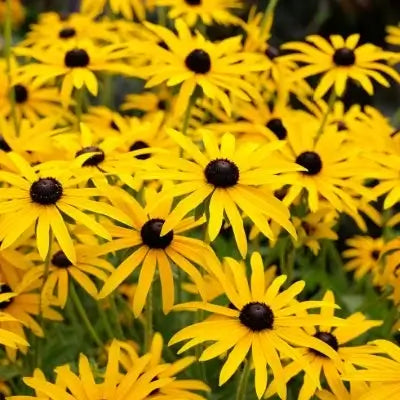Planting and caring for a perennial garden can be a rewarding and enjoyable experience
Perennials are plants that live for more than two years, returning and blooming year after year. Here are some steps to help you successfully plant and care for your perennial garden:
Choose the Right Location:
Perennials thrive in areas with well-drained soil and sunlight
Select a place in your garden with at least 6-8 hours of direct sunlight daily. Consider the soil type and make necessary amendments to improve drainage and fertility.
Plan Your Garden: Consider the height, bloom time, and color of the plants you want to include. Create a planting plan considering each plant's mature size to avoid overcrowding.
Prepare the Soil: Clear the area of any brush and loosen the soil with a garden fork. Add manure or an organic mix. Improve soil structure and fertility.
Select and Purchase Plants: Visit a local nursery or garden center to choose your perennial plants. Consider a mix of early, mid, and late-blooming varieties to ensure continuous color throughout the growing season. Look for healthy plants with sound root systems.
Watering: Water newly planted perennials deeply to hydrate the roots. After the initial watering, water the plants regularly, especially during dry spells.
Mulching: Use a layer of mulch around the plants to help suppress weeds and regulate soil temperature. Use materials such as wood chips, straw, or shredded bark. Avoid piling mulch directly against the stems to prevent rot.
Fertilizing: Most perennials benefit from a balanced slow-release fertilizer applied in early spring or as directed on the packaging.
Pruning: Prune your perennials to maintain their shape and encourage healthy growth.
Deadhead spent flowers to promote continuous blooming. Cut back the plants to the ground in late fall or early spring, depending on the specific requirements of each species.
Pest and Disease Management: Monitor your plants regularly for signs of pests or diseases. Remove any affected leaves or plants promptly. Consider using organic methods such as insecticidal soap or neem oil if necessary.
Division and Propagation: Some perennials benefit from division every few years to maintain vigor. Research the specific requirements for each plant and divide them in early spring or fall when they are not actively blooming.
Remember that different perennials have different care requirements, so research the specific needs of the plants you choose for your garden.
Regular observation and care will help ensure a thriving and beautiful perennial garden for years
Tn Nursery https://www.tnnursery.net



































































